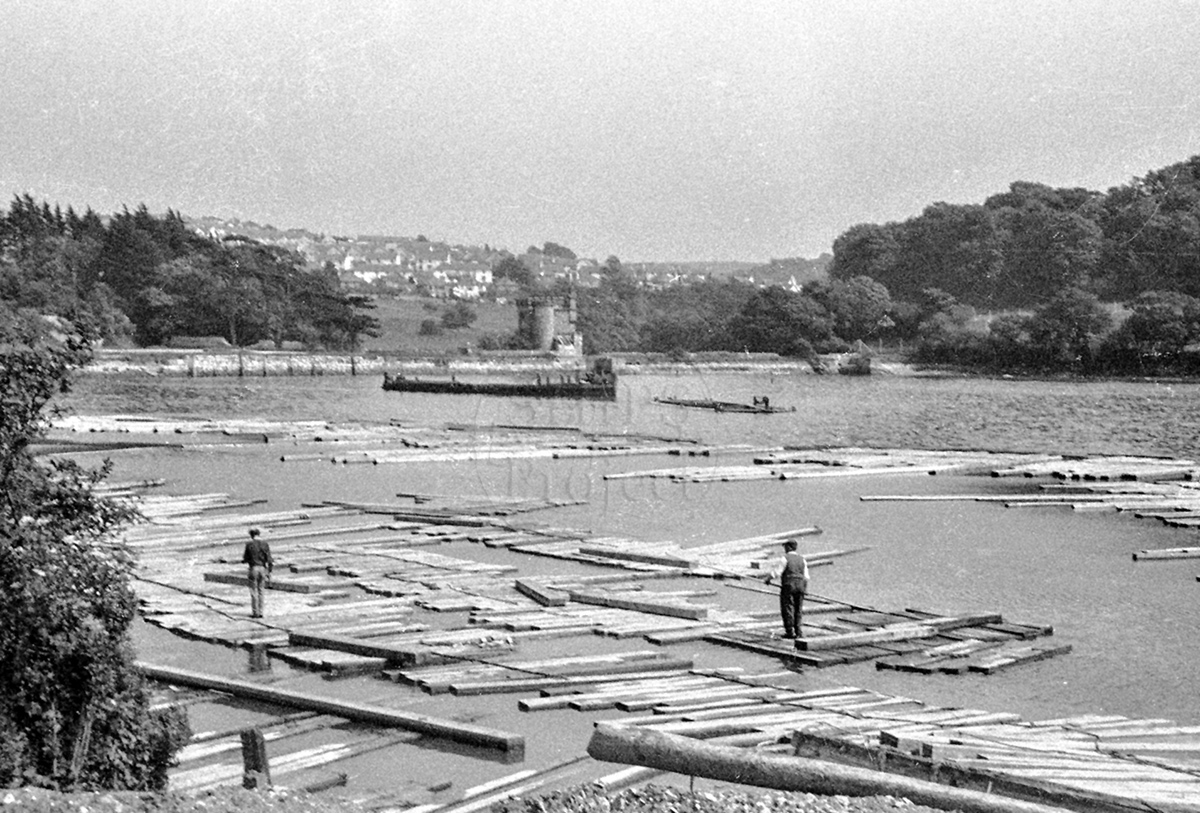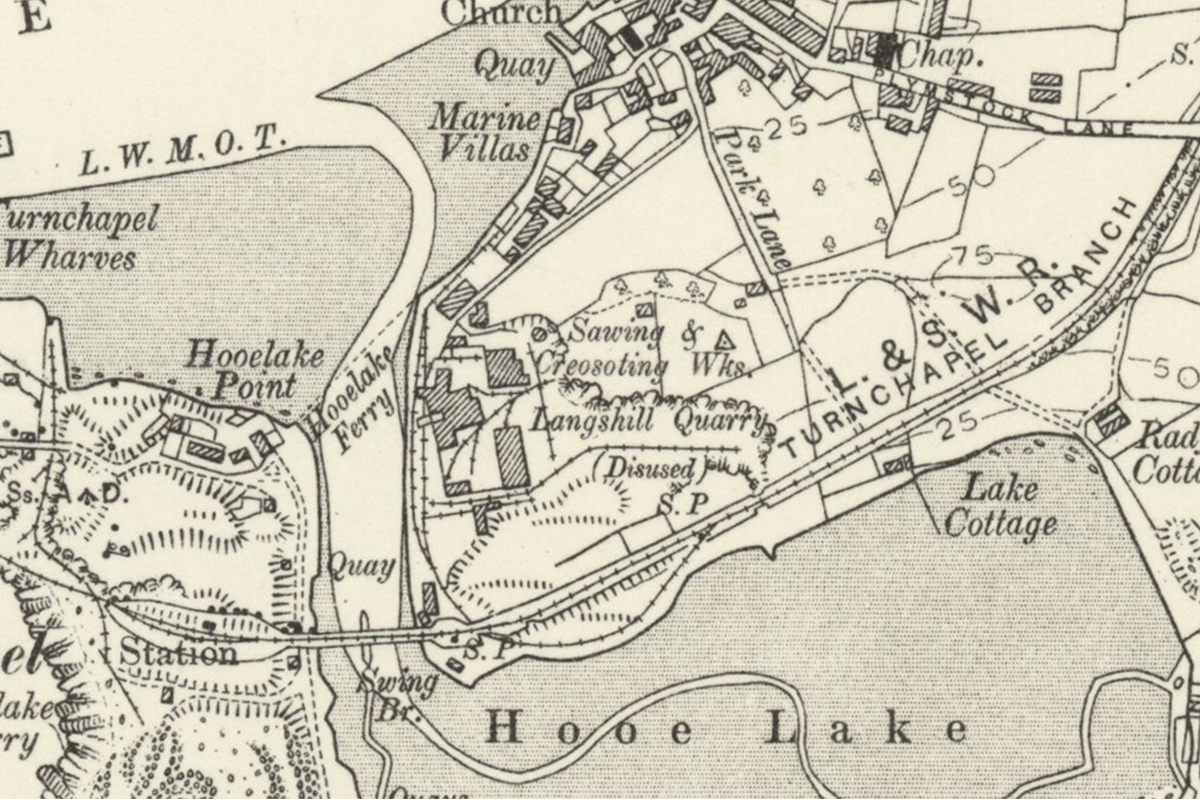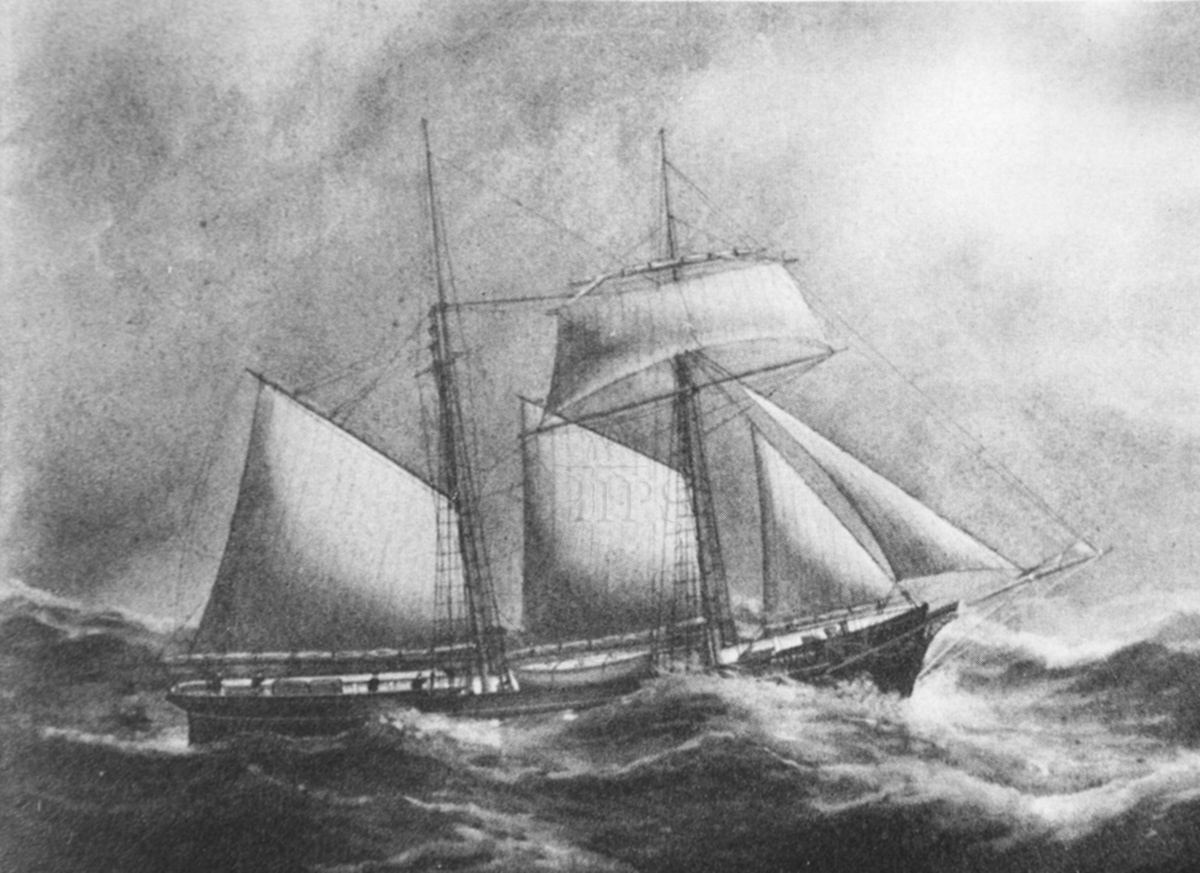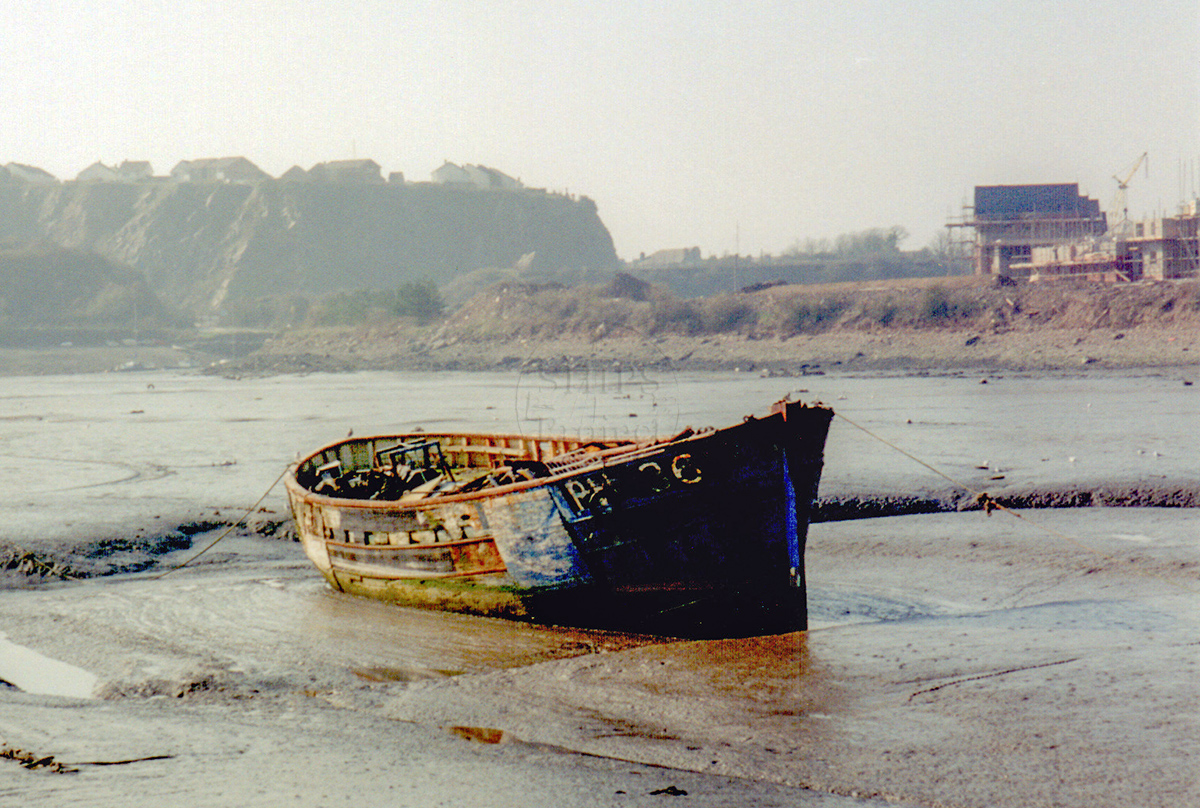Not Set
At least three vessels were thought to have been abandoned on the north shore of Hooe Lake, one of which was the schooner Dolphin.
Types
Schooner
History
On a map in their book Lost Ships of the West Country, Langley and Small show a schooner called Dolphin on the northern foreshore, just to the west of the unknown steamship (possibly Alice ![]() ) and the small Thames Barge Bertie
) and the small Thames Barge Bertie ![]() . Unfortunately no other information is provided and Dolphin is a very common name so identifying this vessel is not a simple task. However, more details are provided in another book where it is said that the Dolphin was owned by Alfred Tope of Oreston, trading along the west coast shipping out clay and returning with a cargo of coal. More research found this vessel, a topsail schooner built in Liverpool in 1867 with official number 60009, and the picture Fig. 1 is reported to be from a painting of this schooner.
. Unfortunately no other information is provided and Dolphin is a very common name so identifying this vessel is not a simple task. However, more details are provided in another book where it is said that the Dolphin was owned by Alfred Tope of Oreston, trading along the west coast shipping out clay and returning with a cargo of coal. More research found this vessel, a topsail schooner built in Liverpool in 1867 with official number 60009, and the picture Fig. 1 is reported to be from a painting of this schooner.
In 1870 the schooner Dolphin was registered in Fleetwood by John Wignall of that town at 85 GRT. In 1880 she was owned by the Wyre Shipping Co, of Fleetwood at 76 tons and by 1900 she was registered in Lancaster by James Helme. By 1910 she was registered in Dumfries by John Carswell of Kirkcudbright and at that time was commanded by Captain Sharp, who was sadly killed by a fid falling on him from the foretop. Ten years later Dolphin was owned by Alfred E. Tope of Woburn Terrace in Oreston, Plymouth, but still registered in Dumfries, but the Dolphin was no longer registered by 1923.
The account says that Dolphin was registered as 120 tons, however this Dolphin was registered as only 85 tons in 1870 and this had reduced to just 65 tons when Tope owned her in 1920. It also says that Tope owned her from 1916 with nephew Bill Jackson as mate, but the official records say she was owned by John Carswell at that time.
Aerial photographs that probably show an abandoned steamship and a Tamar sailing barge on the North shore of Hooe lake do not show a vessel as big as a schooner lying with them. The stories of many of these hulks has become confused over time so the schooner may in fact be the hulk Hooe Lake 3, see Hooe Lake Mystery Ships ![]() for more information.
for more information.
Description
When the Old Wharf housing estate was built in 1996 the north bank was further reinforced, moving the shoreline between 12 and 25m in to the lake, burying more of the foreshore and any evidence of hulks that were beached there. For more information please see the North Shore Hulks ![]() page.
page.
Location and Access
Hooe Lake north shore, Oreston, Plymouth
Take Plymstock Road into Oreston, turn left into Bayly's Road then follow the road round to the left along The Old Wharf. The foreshore can be accessed through any of the footpaths heading towards the lake.
Nearby hulks include the timber barge Arthur ![]() , the two Harbour Launches
, the two Harbour Launches ![]() and the Thames barge Bertie
and the Thames barge Bertie ![]()
Last updated 21 Mar 2021
Information
Date Built:
1867
Type:
Schooner
Builder:
Unknown, Liverpool
Official Number:
60009
Length
Beam
Depth in Hold
Construction
Timber, carvel
Propulsion
Sail, schooner rig
Tonnage
85 GRT, then 76 then 65 GRT
Portmarks
None
Abandoned
1923?
Reference
Unknown
Bayly Bartlett Timber
The Plymouth and Oreston Timber Company yard covered ten acres of the eastern side of the entrance to Hooe Lake, around into the north side of the lake itself with six acres of foreshore, locally known as the 'pickle yard'. Timber would be offloaded in the Cattewater, formed into rafts and towed into the Lake. The Oreston yard was used for treating timber with preservatives or impregnating sleepers and telegraph poles with creosote. In 1957 a merger made the company Bayly Bartlett which operated on the site until 1992.
Not Set
Leave a message
Your email address will not be published.
Click the images for a larger version
Image use policy
Our images can be used under a CC attribution non-commercial licence (unless stated otherwise).





